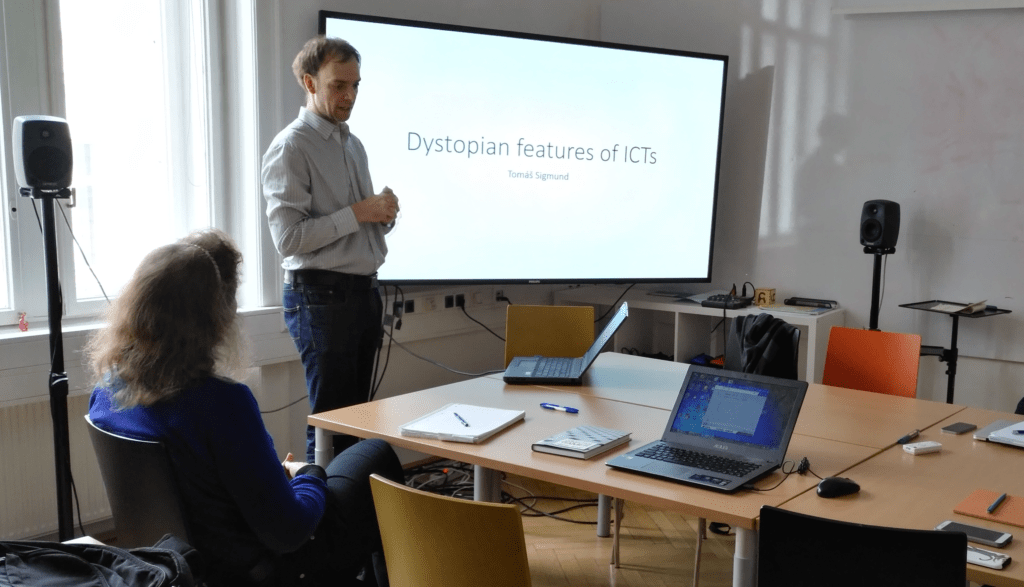Information Ethics Systems Approaches workshop III
The third meeting of the project Systems Approaches to Information Ethics was held in Vienna 13-17 November 2017.
The topics included:
- foundational questions of systems approaches (evolutionary theory, emergentist systemism and normativity; information in the context of being and non-being, actuality and potentiality, and existence and non-existence);
- problems of Information Ethics approaches (inter- and/or transcultural Information Ethics; the possible reconciliation of the perspectives of Capurro, Ess and Floridi); and
- applications questions (Internet and cognitive enhancement; convivialism as provider of design criteria; dystopias in novels and technology; current norms and rules in the area of Business Ethics like ISO 26000, GRI standards, concept of triple P, “Gemeinwohlmatrix”; Ethically Aligned Design as proposed by the IEEE Global Initiative for Ethical Considerations in AI and Autonomous Systems).
Cristina Voinea, PhD student in philosophy from the University of Bucharest, working on Internet governance, was guest of the Emergent Systems Group and participated in the meeting along with the PhD scholars at the Bertalanffy Center from the School of Humanities at the Jiaotong University, Xi’an, Liang Wang and Tianqi Wu, and Annette Grathoff, working in the Evolution of Information Generating Systems, besides the leaders of the project, Tomáš Sigmund and Wolfgang Hofkirchner. In addition, BCSSS Fellow Felix Tretter, Robert Jahn, Renate Quehenberger and Stefan Blachfellner contributed to the discussion.
We invited Cristina Voinea to discuss her paper Designing for Conviviality to be published in the journal Technology in Society. The paper is about ethical design in the sense of Austrian writer Ivan Illich’s famous book on Tools for Conviviality combined with the perspective of emergentist systemism. Convivialism popped up only recently when French intelligentsia, including Ludwig von Bertalanffy Award in Complexity Thinking winner Edgar Morin, elaborated on a manifesto describing how to find out a way of current social crises through a delicate balance of social agents being mindful of a viable social system structure and a structure that allows the flourishing of all agents. This manifesto has been signed by thousands of people so far, spreading around the globe. Emergentist systemism provides a social ontology connected to Mario Bunge, a winner of the Ludwig von Bertalanffy Award in Complexity Thinking, too. Emergentist systemism is a realist approach, can be regarded as in line with Bertalanffy’s General System Theory and is the proper tool to deal with the complexities of our social world.
The events took place at the Bertalanffy Center and at the TU Wien as well.
Here are the contributions:
Topic 1
Annette Grathoff | The evolutionary perspective
Wolfgang Hofkirchner | A comment on the stage model of emergentist systemism | Another comment on metasystem transition and suprasystem hierarchy

Tianqi Wu | A new perspective on existence and non-existence
Topic 2

Liang Wang | Systematic approach to transcultural Information Ethics
Tomáš Sigmund | Phenomenological perspective on Information Ethics
Topic three:

Cristina Voinea | The Internet as a labyrinth: a failed cognitive enhancement | Designing for conviviality (for a good society)

Tomáš Sigmund | Dystopian features of ICTs | Business ethics standards



Comments:0